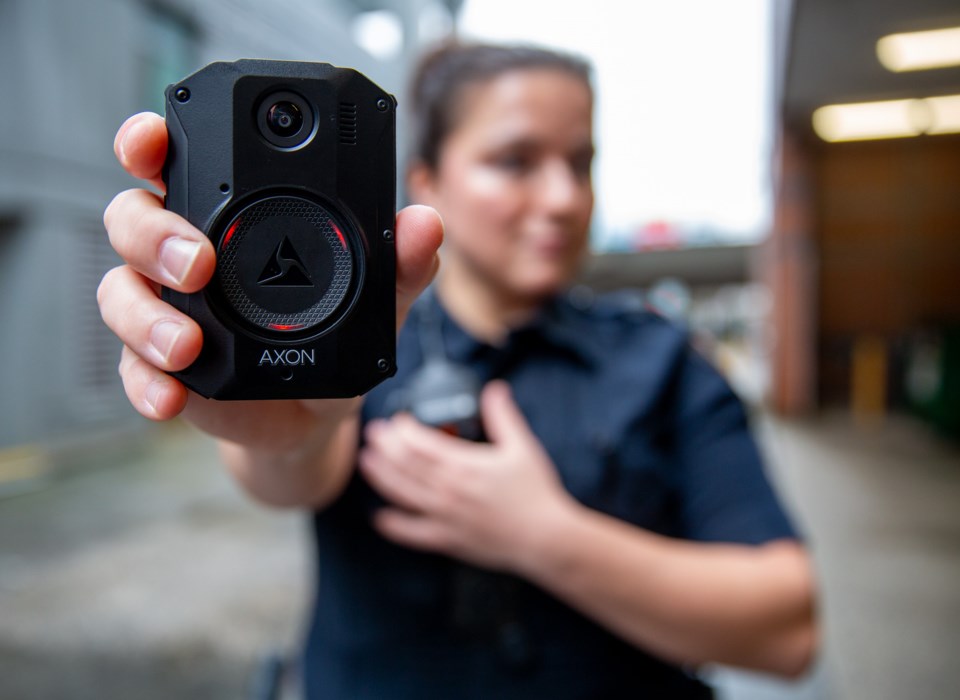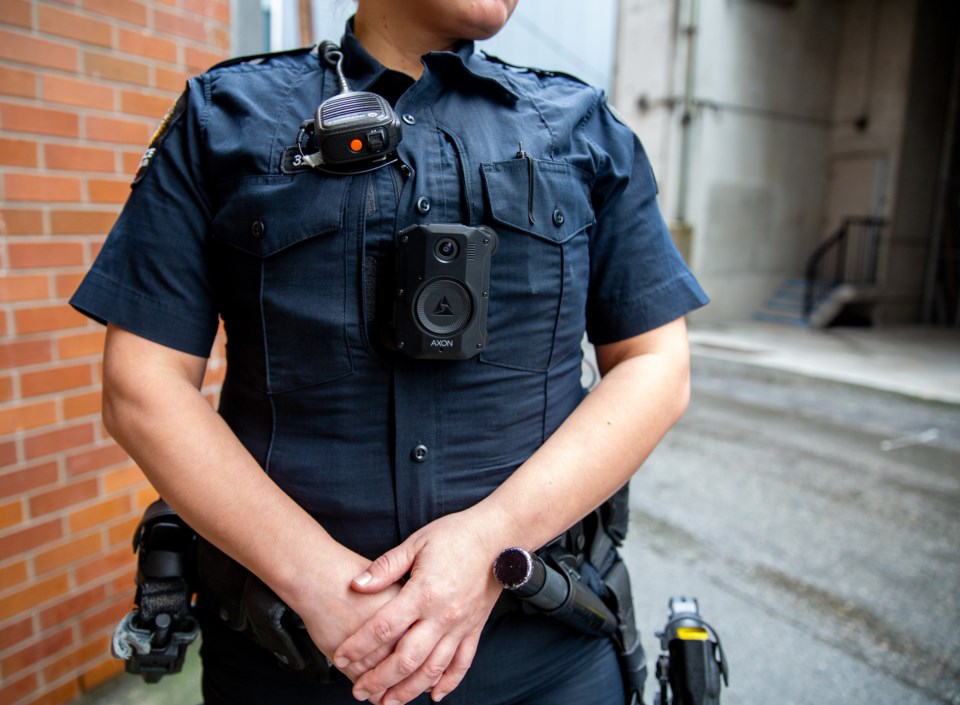Vancouver police announced Thursday that 85 officers have begun wearing body-worn cameras as part of a six-month trial aimed at “enhancing trust and confidence through improved technology.”
The department said in a news release that officers working in the downtown core, the east side of the city and in the traffic section were deployed Thursday with the chest-mounted cameras.
Motorcycle officers will be outfitted with cameras on their helmets.
“We live in complicated times, and it’s important that we do everything we can to keep your neighbourhoods safe, to protect your rights and to ensure Vancouver remains a first-class city,” said Deputy Chief Howard Chow in the release. “This is about trust, confidence and continuing to deliver the best service to the people of Vancouver.”
Officers are expected to activate their cameras as soon as “safe and practicable” for calls when there is “a reasonable belief that there will be use of force or where violent or aggressive behaviour is anticipated,” the release said.
The department said that any officer who activates a camera will inform a person that they are being recorded “as soon as possible, unless doing so could jeopardize the safety of an officer or a member of the public.”
'Heightened privacy concerns'
Officers are not required to have their cameras continuously turned on if they are not responding to a specific incident or interacting with a citizen.
“There are also times when, due to heightened privacy concerns, officers may use discretion and not activate a camera, such as in a place of worship, in a hospital, in a law office, or in a private home where they may encounter young children, victims of crime and other sensitive situations,” the department said.
In most cases, the department added, officers will be able to review recordings while documenting incidents and preparing reports to Crown counsel.
Prior to launching the trial, the department consulted with community groups, B.C.’s Privacy Commissioner, health authorities, the Independent Investigations Office, the Office of the Police Complaint Commissioner, the Vancouver Police Union, service providers in the Downtown Eastside and Indigenous community members.
“Through careful consideration and extensive community consultation, we believe we’ve reached a balance that protects people's rights and their privacy, while also enhancing public trust in our work and helping our officers better serve their communities,” Chow said.

Trial budget, $307,000
The budget for the trial is $307,000. The VPD has not disclosed how much a permanent camera program would cost.
The ABC Vancouver majority at city hall campaigned in 2022 on equipping officers with body cameras. However, council cannot mandate officers to wear cameras; that is the jurisdiction of the police board.
Supt. Howard Tran told the police board in September 2023 that “if all goes well, full implementation can occur in 2025," depending on feedback from officers, the public and the board.
An evaluation report is expected to go before the board sometime in the last quarter of 2024, according to Victor Quan, the VPD’s staff project coordinator for the program.
“We will also measure the use of force by officers and the use of force directed to officers who are wearing the body worn cameras,” Quan told the board. “We will also measure the number of complaints against officers wearing these body worn cameras.”
As part of the program, the VPD has created a tab on its website where citizens can view guidelines governing the use of the cameras. A frequently-asked-questions section is also posted on the website.
Independent Investigations Office
In 2016, the Independent Investigations Office said in its annual report that it could have better resolved a significant number of cases in B.C., if officers were equipped with body cameras.
The report concluded that footage from cameras would have potentially assisted in 93 per cent of 71 investigations reviewed by the agency’s investigators.
Of the 71 cases reviewed, 49 involved general duty officers, 17 were related to dog handler teams and five concerned emergency response teams and the Combined Forces Special Enforcement Unit.




